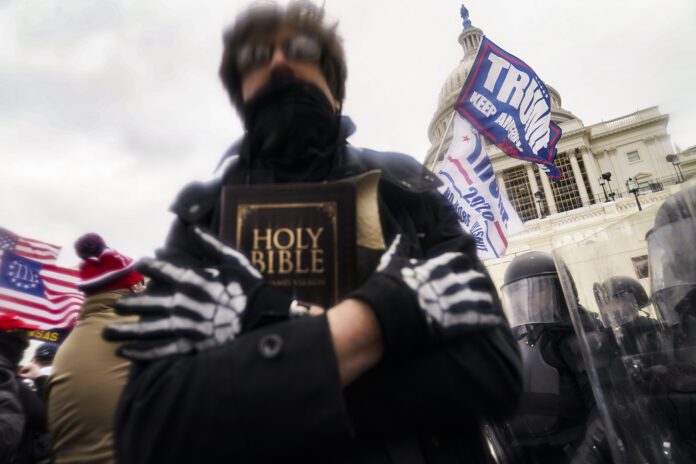(RNS) — Americans do not want to see the United States declared a Christian country and they do not want to forsake the separation of church and state, a new Pew Research study finds.
The study, a first-of-its-kind, conducted online in March among 12,055 Americans, finds that even among highly religious Christians, only a third said the U.S. should abandon its adherence to the separation of church and state or declare the country a Christian nation.
Pew has never before asked specific questions about American views on the separation of church and state, or what some other researchers have termed Christian nationalism, so it’s impossible to gauge whether support for these issues has risen or fallen.
But as a baseline, it shows that 67% of Americans believe the U.S. Constitution was written by human beings and is not God-inspired. Most Americans also reject the idea that the federal government should advocate for Christian values; 63% said it should advocate for values shared by many faiths.
“It is clear in the data that there is a lot more support for the idea that church and state should be kept separate than for the idea that church and state should intermingle,” said Gregory Smith, the lead researcher for the Pew study.
Pew intends to continue tracking public opinion on the issue in coming years.
But the survey also found Americans were divided on some church-state issues.
Three in 10 said public school teachers should be allowed to lead students in Christian prayers, a practice that the Supreme Court has ruled unconstitutional. And nearly 4 in 10 said it’s OK to put up Christian symbols in the public square.
Nearly a quarter of Americans refused to answer the questions or said they had no opinion — suggesting some ambivalence on the subject.
Andrew Whitehead, a sociologist who has studied Christian nationalism, along with fellow sociologist Samuel Perry, said the timing of the survey, less than two months after the Jan. 6 insurrection at the U.S. Capitol, may be partly responsible for why so many declined to answer Pew’s questions on the subject.
“It could be that in that moment there was a lot of talk about the role of Christianity in the insurrection and people may have been hesitant to share or maybe they’re reevaluating,” Whitehead said.
As expected, the survey found that more Republicans than Democrats said they want a prominent place for Christianity in U.S. national identity. Still, 58% of Republicans said the federal government should never declare any religion as the official religion. Democrats were near unanimous in their support for a separation of church and state.

